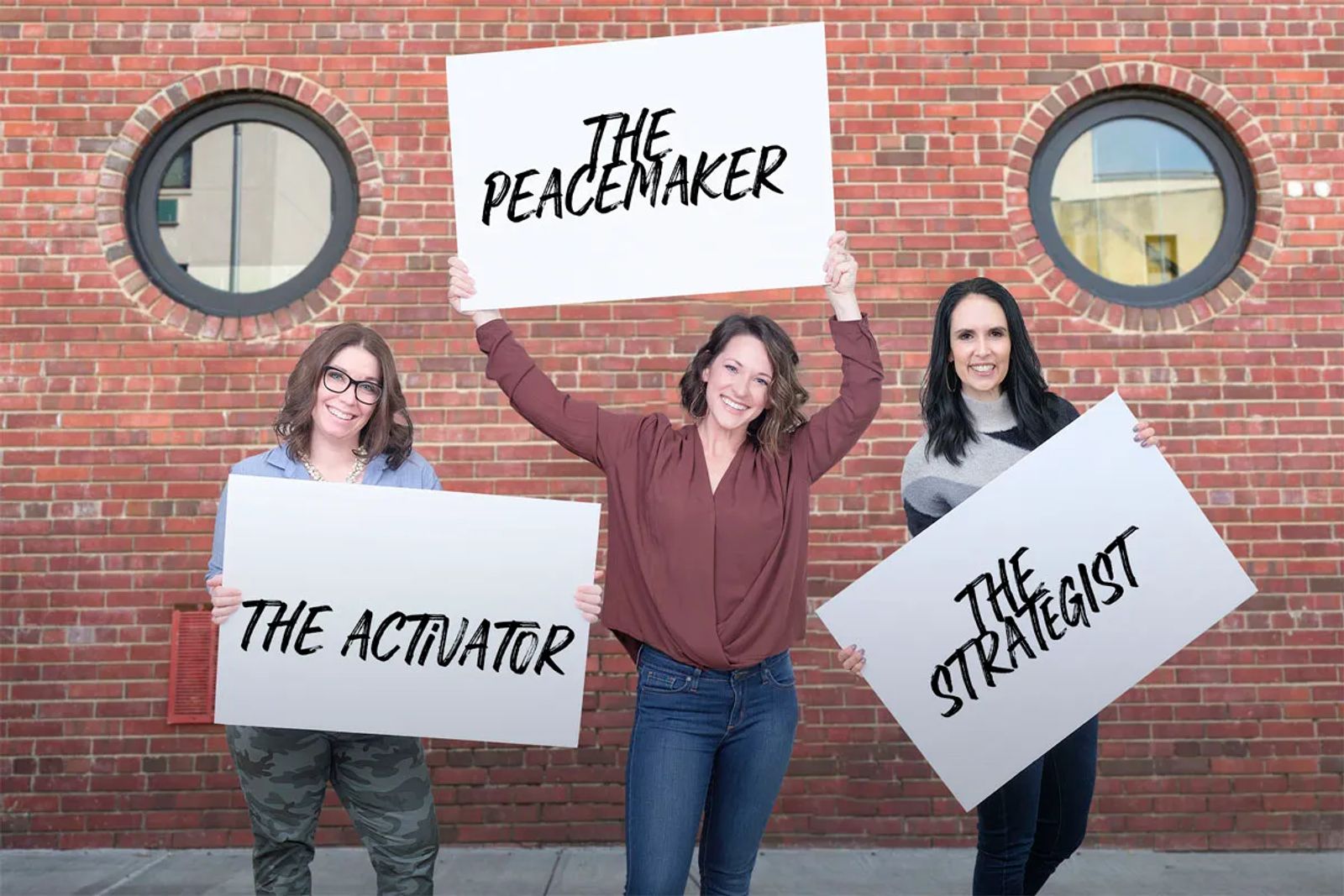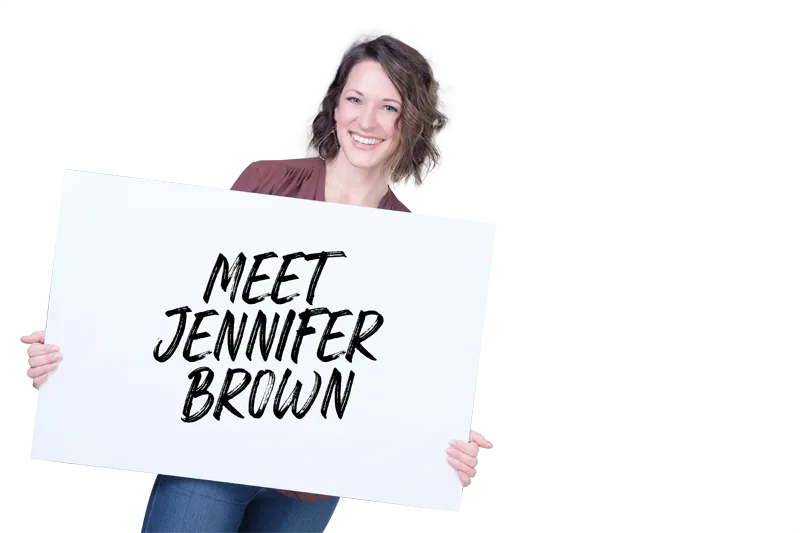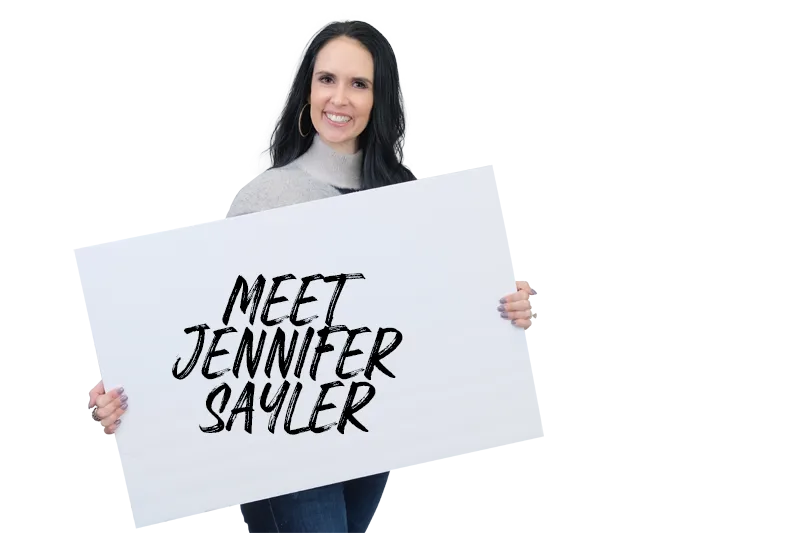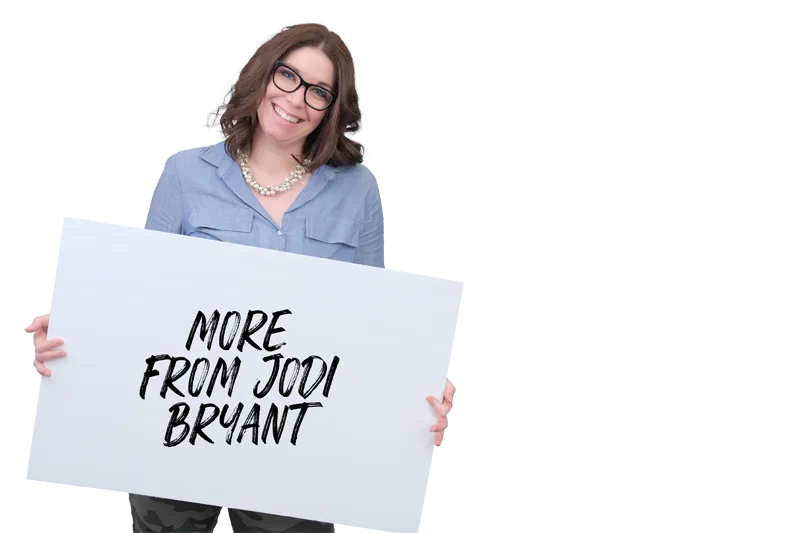
She's Got Personality!
What personality assessments can tell you about life
Jodi Bryant has taken five personality assessments over the years, and one thing is conclusive. They’ve all said she’s impatient. It’s a negative trait she’s embracing with humor.
“I like to call it a sense of urgency,” she says.
Bryant is a team leader in healthcare management, so a little sense of urgency can be motivating, but she’s also learning to slow down by adding downtime to her daily to-do list. She’s taking these assessments to heart, striving for positive change.
Insightful and affirming, personality assessments seem to be all the buzz these days, from the workplace to churches, to therapists’ offices and on our social media feeds. The goal is, the more you understand yourself, the more effective and happier you can be.
Are they worth the hype? YVW put three women to the test, including Bryant, to find out. They clicked through the Enneagram, one that identifies nine unique personality types; Myers and Briggs, an assessment that offers 16 types based on a combination of four preferences; and CliftonStrengths, which rates a person’s strengths out of 34 possible talents.

Jennifer Brown is an at-home mother of five children. She says she was never a big fan of personality assessments since they rarely aligned with how she saw herself, and every time she took them, the results were different. Instead of empowering her, they only led to more questions.
“I even worried that there wasn’t anything unique about me,” she says.
Then, Brown discovered the Enneagram, which identified her as a Nine – The Peacemaker – and it explained why personality assessments were always so vague for her. Peacemakers are a kind and agreeable group that focus on bringing people together. Nine’s easygoing attitude tends to reflect the personality traits of those around them, which explains why many of the personality tests Brown took came up flat.
“I realized that I’m not broken, this is just the way I’ve been created,” she says.
Over time and with study, Brown has brought her awareness of herself as a Nine into her friendships and even her marriage. Knowing herself better has deepened her relationships, and understanding her tendencies has helped her to recognize and change those negative thoughts.
Brown also found CliftonStrengths to be insightful. Her top strength was Belief, and people with belief as a top strength have unchanging core values that give their lives purpose.
“That resonated with me,” she says, “because my faith is important to me.”

Jennifer Sayler has a fun habit of collecting inspirational quotes and passing them along to friends and coworkers. Her encouragement comes at what they’ve often told her was “just the right time.” Sayler, who works as a marketing director, didn’t think much of her little pastime until recently, when she took the CliftonStrengths assessment.
“It was jaw-dropping how specific it was,” Sayler says.
Sayler’s top strength was Strategic — an out-of-the-box thinker who can quickly spot relevant patterns and issues and come up with alternatives for every situation. It’s a leadership quality that serves her well at work. She also has Input as a strength, which is a craving to know more and collect information, which probably explains why she likes to collect quotes. Positivity and Empathy are also in her top five strengths and underscore why she loves to encourage those around her.
“It’s the affirmation that these are good traits that I needed,” Sayler says.
On the Myers and Briggs, Sayler was an ENFJ, which also affirmed her as a leader. The assessment suggested Jennifer follows her feelings before her head, which has led to some stinging criticism at a previous job.
“Now that I understand myself better,” she says, “I know that that is not always negative.”

Aside from helping Bryant become a better leader, personality assessments helped her to see where her team members fit in the overall goals she has for them.
“I’m able to identify common ground, and recognize the strengths of others,” she says.
Bryant took the CliftonStrengths assessment and her top strength was Activator, someone who can make things happen by turning thoughts into action, followed by Communication and Woo — the ability to make authentic connections with people and win them over.
In her personal life, Bryant found the Enneagram to be the most insightful. She’s an Enneagram Seven, The Enthusiast, known for their energy, spontaneity and curiosity. The Enneagram, which proposes that a person’s personality is shaped in very early childhood, has provided her with a more intimate picture of who she is in her relationships.
“It gives you an awareness that can definitely create some peace in your soul,” Bryant says.
AN EXPERT’S TAKE
Susan Shald, who lives in Billings, is the director of talent acquisition for Gallup, a human capital consulting firm that relies heavily on the CliftonStrengths assessment to help organizations improve workplace culture and productivity. Shald works with the CliftonStrengths assessment every day and sees how it can help organizations develop the strengths of their employees.
The CliftonStrengths is unique because it doesn’t highlight an individual’s weaknesses. Instead, it places all its focus on strengths, particularly the top five. While she favors the CliftonStrengths assessment, Shald believes all personality assessments have the power to help us improve our lives, so long as people are willing to dig in and find ways to make the most of their natural abilities.
“It’s our catapult to go to the next level,” Shald says.
Shald believes that one of the best ways to develop your strengths is to talk about them, share the insight you gained with others and allow them to support you as you develop your strengths and put them to use.
Strengths are like a muscle, Shald says, and the more you exercise that muscle, the more developed that ability will be. And like anyone looking to build muscle, a trainer or coach can help. She advises people to lean on an accountability partner if they can’t find a coach.
“We are at our best, happiest and most productive when we know ourselves well and get to do what we’re naturally good at,” Shald says.
WORTH THE HYPE? HECK YEAH!
When you can peel back the layers, Brown, Sayler and Bryant all agree, personality assessments helped them see themselves in a new way.
“Without awareness, you have no ability to change,” Bryant says.
The best approach is to think of them not as something that defines you, but something that gives you insight for living. They’re not boxes, but wings.
“They’re great tools. Seeing myself clearly means I can be a more effective person,” Brown says.
Sayler wholeheartedly recommends taking personality assessments, not just for what you may learn about yourself, but also to confirm what you might already know.
“If you have any reservations about it, take that off the table,” Sayler says. “Hands down, you will be so grateful for the affirmation and insight you’ll receive.”
A LOOK AT THE ASSESSMENTS
THE ENNEAGRAM
The Enneagram has ancient origins, providing people with insight into the unique, inborn ways they perceive the world and how they manage their emotions. In this test, there are nine identified personalities: 1-The Perfectionist, 2-The Giver, 3-The Achiever, 4-The Individualist, 5-The Investigator, 6-The Loyalist, 7-The Enthusiast, 8-The Challenger, and 9-The Peacemaker. Users typically identify by number, and each number comes with both positive and negative traits to examine. With further study, people can apply what they know about their types to the workplace, teams, interpersonal relationships and social situations.
To learn more and take the assessment, go to enneagraminstitute.com.
MYERS AND BRIGGS TYPE INDICATOR (MBTI)
Developed by Katharine Cook Briggs and her daughter Isabel Briggs Myers, the Myers and Briggs assessment measures people’s likelihood to think or act a particular way based on four tendencies: extraversion vs. introversion, sensing vs. intuition, thinking vs. feeling, judging vs. perceiving. This assessment measures where a person falls in each one and to what degree. The results are provided in a series of four letters that map the tendencies into 16 distinct and equal personality types. It’s in common use among psychotherapists and has been adopted in business as well.
To learn more and take the assessment, go to myersbriggs.org.
CliftonStrengths
Don Clifton spent more than 30 years studying the world’s most successful and productive people to identify 34 unique talents. The CliftonStrengths assessment identifies a person’s top strengths in order and intensity, and the odds of anyone sharing her top five strengths with anyone else in the same order is about one in 33 million. Unlike other assessments, it focuses entirely on identifying and building people’s talents with almost no focus on weaknesses. CliftonStrengths is a popular workforce development tool with powerful implications for personal growth as well.
To learn more about CliftonStrengths, go to gallup.com/cliftonstrengths.
TAKE THE ASSESSMENTS FOR YOURSELF
Our participants took a free version of the Myers and Briggs called the TypeFinder Personality Test at www.truity.com. A free version of the Enneagram can be found there as well. The CliftonStrengths assessment can only be found at gallup.com, but a free access code is included in every copy of the book StrengthsFinder 2.0 by Tom Rath, Available on Amazon.com for $14.49.












